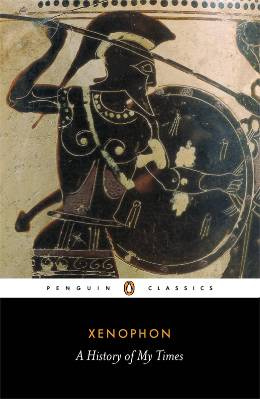Xenophon - The Apology
Here you can read online Xenophon - The Apology full text of the book (entire story) in english for free. Download pdf and epub, get meaning, cover and reviews about this ebook. year: 2012, genre: Science. Description of the work, (preface) as well as reviews are available. Best literature library LitArk.com created for fans of good reading and offers a wide selection of genres:
Romance novel
Science fiction
Adventure
Detective
Science
History
Home and family
Prose
Art
Politics
Computer
Non-fiction
Religion
Business
Children
Humor
Choose a favorite category and find really read worthwhile books. Enjoy immersion in the world of imagination, feel the emotions of the characters or learn something new for yourself, make an fascinating discovery.
The Apology: summary, description and annotation
We offer to read an annotation, description, summary or preface (depends on what the author of the book "The Apology" wrote himself). If you haven't found the necessary information about the book — write in the comments, we will try to find it.
The Apology — read online for free the complete book (whole text) full work
Below is the text of the book, divided by pages. System saving the place of the last page read, allows you to conveniently read the book "The Apology" online for free, without having to search again every time where you left off. Put a bookmark, and you can go to the page where you finished reading at any time.
Font size:
Interval:
Bookmark:
Xenophon the Athenian was born 431 B.C. He was a
pupil of Socrates. He marched with the Spartans,
and was exiled from Athens. Sparta gave him land
and property in Scillus, where he lived for many
years before having to move once more, to settle
in Corinth. He died in 354 B.C.
The Apology describes Socrates' state of mind at
his trial and execution, and especially his view
that it was better to die before senility set in
than to escape execution by humbling himself be
fore an unjust persecution. Xenophon was away at
the time, involved in the events of the march of
the ten thousand.
This was typed from Dakyns' series, "The Works of Xenophon," a four-volume set. The complete list of Xenophon's works (though there is doubt about some of these) is:
Work Number of books
The Anabasis 7
The Hellenica 7
The Cyropaedia 8
The Memorabilia 4
The Symposium 1
The Economist 1
On Horsemanship 1
The Sportsman 1
The Cavalry General 1
The Apology 1
On Revenues 1
The Hiero 1
The Agesilaus 1
The Polity of the Athenians and the Lacedaemonians 2
Text in brackets "{}" is my transliteration of Greek text into English using an Oxford English Dictionary alphabet table. The diacritical marks have been lost.
Among the reminiscences of Socrates, none, as it seems to me, is more deserving of record than the counsel he took with himself while engendering the deepest longing for the departed. For of necessity he will only be thought of with regret and longing who leaves nothing behind unseemly or discomfortable to haunt the imagination of those beside him, but, sound of body, and his soul still capable of friendly repose, fades tranquilly away."
"No doubt," he added, "the gods were right in opposing me at that time (touching the inquiry, what I was to say in my defence),
"No," he added, "God knows I shall display no ardent zeal to bring that about. On the contrary, if by proclaiming all the blessings which I owe to god and men; if, by blazoning forth the opinion which I entertain with regard to myself, I end by wearying the court, even so will I choose death rather than supplicate in servile sort for leave to live a little longer merely to gain a life impoverished in place of death."
It was in this determination, Hermogenes states, that, when the prosecution accused him of not recognising the gods recognised by the state, but introducing novel divinities and corrupting the young, Socrates stepped forward and said: "In the first place, sirs, I am at a loss to imagine on what ground and soothsayers, I speak of a divinity, and in using that designation I claim to speak at once more exactly and more reverentially than they do who ascribe the power of the gods to birds. And that I am not lying against the Godhead I have this as a proof: although I have reported to numbers of friends the counsels of heaven, I have never at any time been shown to be a deceiver or deceived."
As they listened to these words the judges murmured their dissent, some as disbelieving what was said, and others out of simple envy that Socrates should actually receive from heaven more than they themselves; whereupon Socrates returned to the charge. "Come," he said, "lend me your ears while I tell you something more, so that those of you who choose may go to a still greater length in refusing to believe that I am thus highly honoured by the divine powers. Chaerephon preferred me far beyond other men."
"Still I would not have you accept this even on the faith of the god too rashly; rather I would have you investigate, point by point, what the god has said. I ask you, is there any one procured without expense? If in all I have said about myself no one can convict me of lying, is it not obvious that the praise I get from gods and men is justly earned? And yet in spite of all, Meletus, you will have it that by such habits I corrupt the young. We know, I fancy, what such corrupting influences are; and perhaps you will tell us if you know of any one who, under my influence, has been changed from a religious into an irreligious man; who, from being sober-minded, has become prodigal; from being a moderate drinker has become a wine-bibber and a drunkard; from being a lover of healthy honest toil has become effeminate, or under the thrall of some other wicked pleasure."
"Nay, bless my soul," exclaimed Meletus, "I know those whom you persuaded to obey yourself rather than the fathers who begat them."
"I admit it," Socrates replied, "in the case of education, for they know that I have made the matter a study; and with regard to health a man prefers to obey his doctor rather than his parents; in the public assembly the citizens of Athens, I presume, obey those whose arguments exhibit the soundest wisdom rather than their own relations. And is it not the case that, in your choice of generals, you set your fathers and brothers, and, bless me! your own selves aside, by comparison with those whom you believe to be the wisest authorities on military matters?"
"No doubt, Socrates," replied Meletus, "because it is expedient and customary so to do."
"Well then," rejoined Socrates, "does it not strike even you, Meletus, as wonderful when in all ordinary concerns the best people should obtain, I do not say only an equal share, but an exclusive preference; but in my case, simply because I am selected by certain people as an adept in respect of the greatest treasure men possesseducation, I am on that account to be prosecuted by you, sir, on the capital charge?"
Much more than this, it stands to reason, was urged, whether by himself or by the friends who advocated his cause. he would not follow their lead, but would seem to have treated the idea as a jest, by asking "whether they happened to know of some place outside Attica where death was forbidden to set foot?"
When the trial drew to an end, we are told, the master said: But for myself, what reason have I at the present time to hold my head less high than I did before sentence was passed against me, if I have not been convicted of having done any of those things whereof my accusers accused me? It has not been proved against me that I have sacrificed to novel divinities in place of Zeus and Hera and the gods who form their company. I have not taken oath by any other gods, nor named their name.
"And then the younghow could I corrupt them by habituating them to manliness and frugality? since not even my accusers themselves allege against me that I have committed any of those deeds breaking into houses, selling freemen into slavery, or betrayal of the state; so that I must still ask myself in wonderment how it has been proved to you that I have done a deed worthy of death. Nor yet again because I die innocently is that a reason why I should lower my crest, for that is a blot not upon me but upon those who condemned me.
"For me, I find a certain consolation in the case of Palamedes, but ever tried to benefit those who practised discussion with me, teaching them gratuitously every good thing in my power."
Having so said he turned and went in a manner quite in conformity with the words which he had spokenso bright an air was discernible alike in the glance of his eye, his gesture, and his step.
And when he perceived those who followed by his side in tears, "What is this?" he asked. "Why do you weep now? Do you not know that for many a long day, ever since I was born, sentence of death was passed upon me by nature? If so be I perish prematurely while the tide of life's blessings flows free and fast, certainly I and my well-wishers should feel pained; but if it be that I am bringing my life to a close on the eve of troubles, for my part I think you ought all of you to take heart of grace and rejoice in my good fortune."
Font size:
Interval:
Bookmark:
Similar books «The Apology»
Look at similar books to The Apology. We have selected literature similar in name and meaning in the hope of providing readers with more options to find new, interesting, not yet read works.
Discussion, reviews of the book The Apology and just readers' own opinions. Leave your comments, write what you think about the work, its meaning or the main characters. Specify what exactly you liked and what you didn't like, and why you think so.















